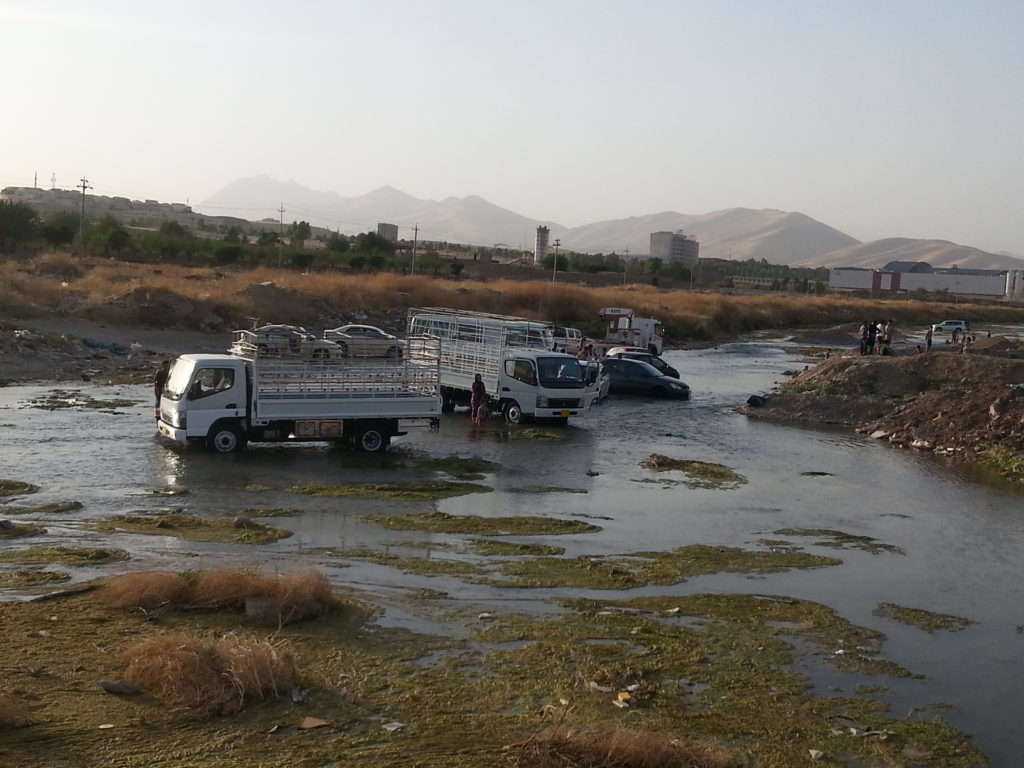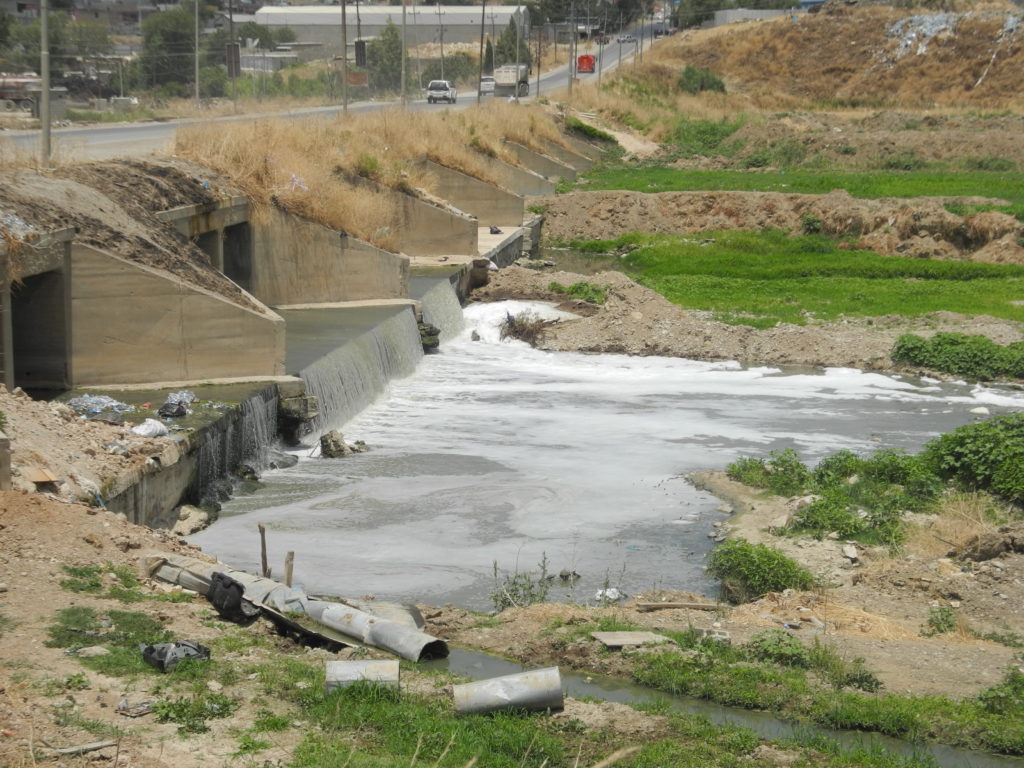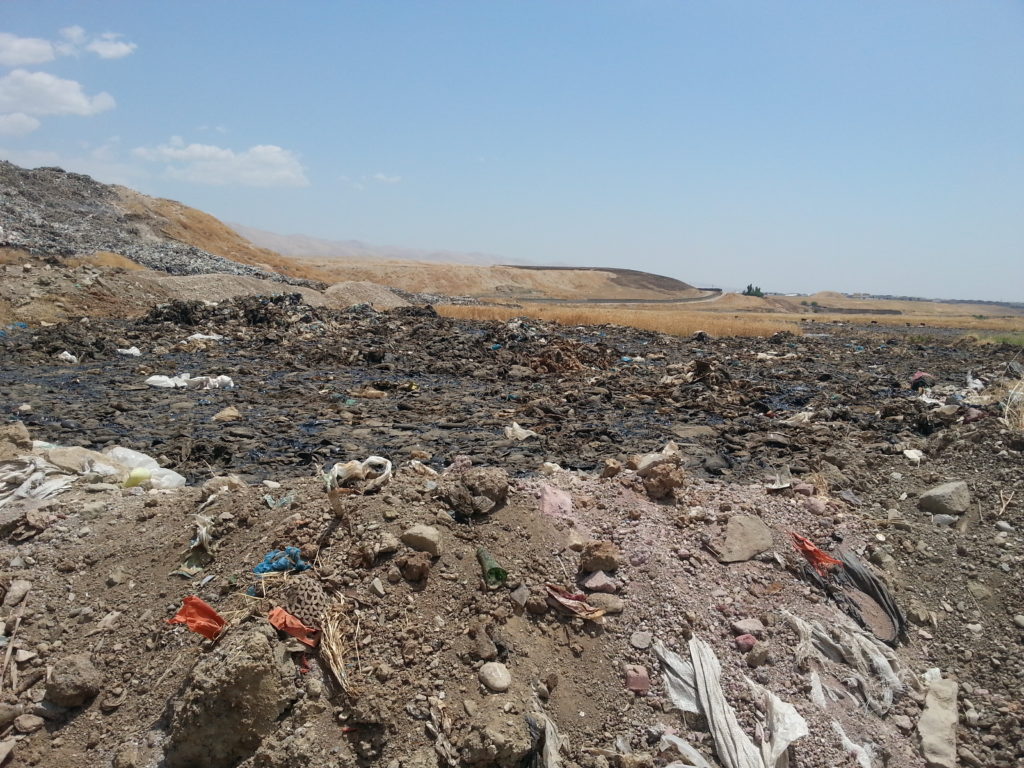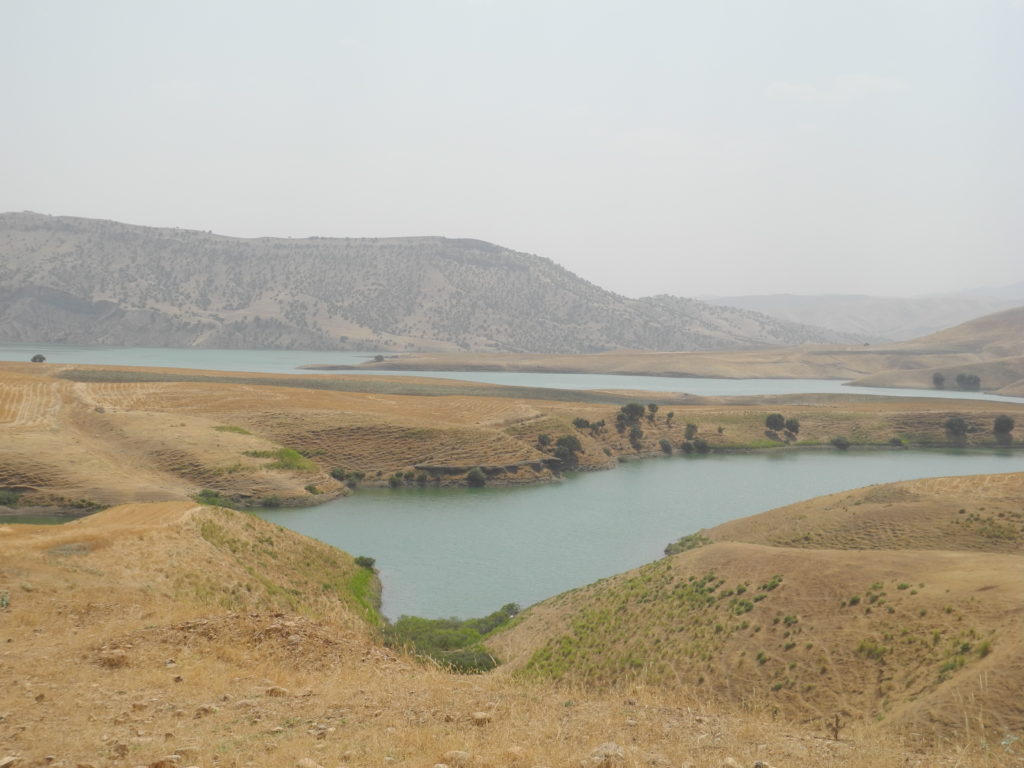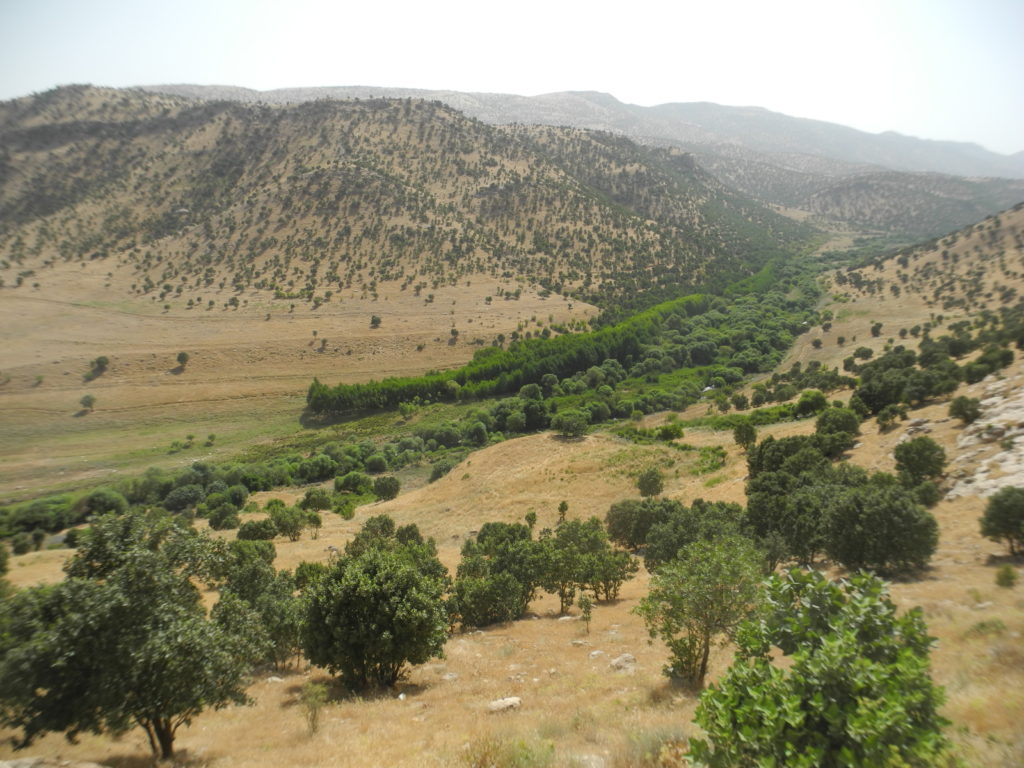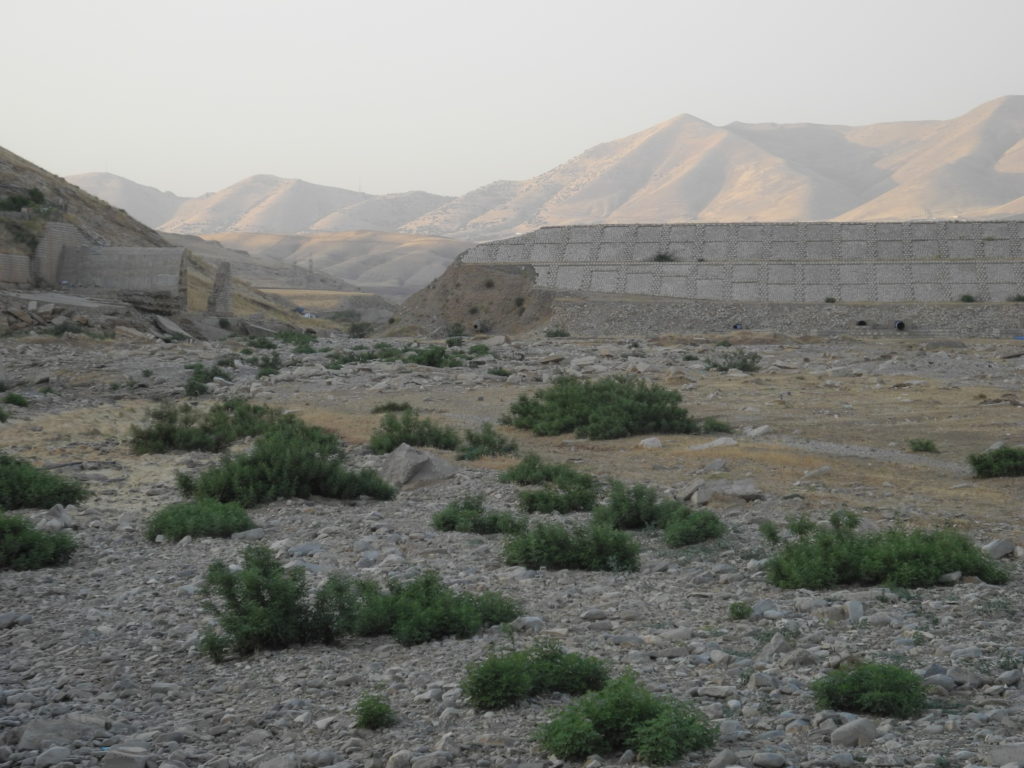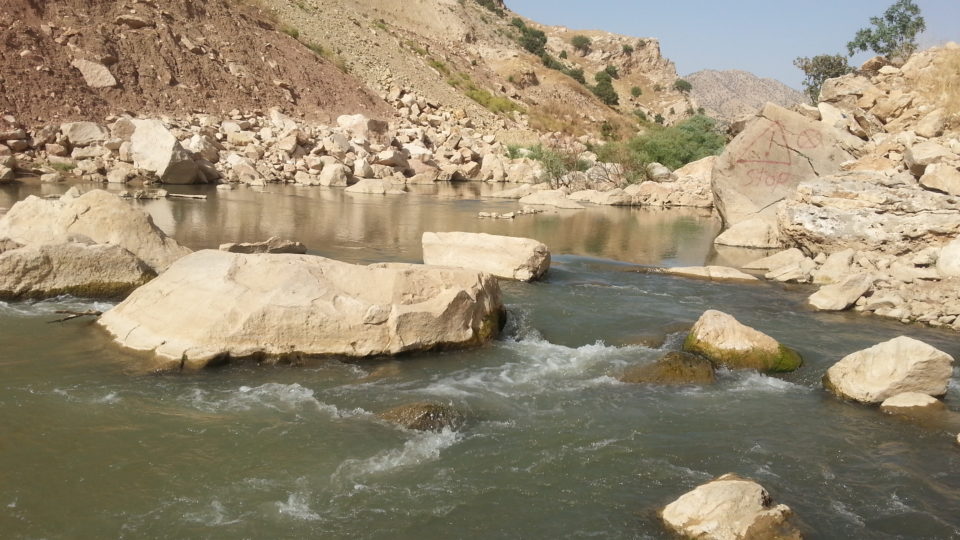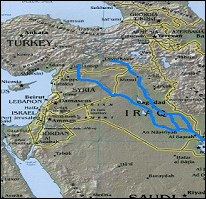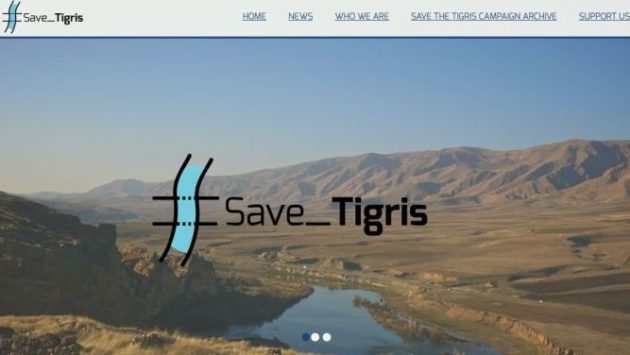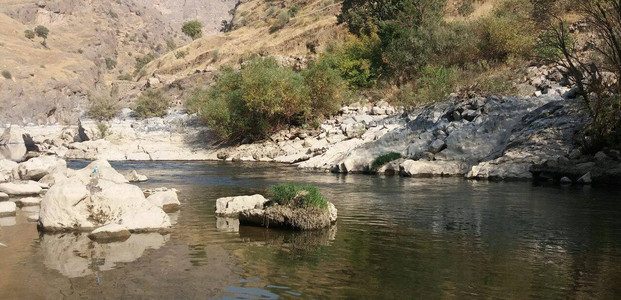Save Iraqi Kurdistan’s rivers from deprivation
By Toon Bijnens, Save the Tigris Campaign
There is no question about the commodification of natural resources and the damage inflicted upon the environment in Iraqi Kurdistan. The exploitation of the environment is a consequence of the economic system envisioned by the ruling parties: a capitalist Kurdistan firmly entrenched in the global free market. Consider that, at the same time, across the border the Kurdish regions in Turkey and Syria have seen the establishment of ecological movements and initiatives, firmly entrenched in the ideals of democratic confederalism and socialism. In Turkey, the Mesopotamian Ecology Movement has been founded, while in Rojava academies have been founded where students are taught about ecology. In Iraqi Kurdistan the situation is quite the opposite: there is a lack of political will, accountability and environmental awareness. This is most obvious when one looks at the poor state of the rivers in Iraqi Kurdistan: a crucial part of the environment, habitats and the freshwater cycle. They are being polluted by industries, diverted to control the flow and extract energy. In Iraqi Kurdistan some rivers are being used as waste dumps and dams are constructed in order to control the rivers. Rivers are exploited, while protection is necessary.
Large corporations have little accountability, demonstrated by the fact that flow of oil into rivers is not uncommon. Southeast of the city of Slemani, a big dump of waste oil has contaminated the groundwater and the spill moved towards the Tanjero River, while nearby rivers have already been polluted by chemicals. The Ministries appear not very effective in reducing the damage that is being afflicted by the large corporations. Tanjero is just one example of a river that has been completely depleted. In addition, rivers are polluted by rubbish that is being thrown into the river, or car washing. It is quite common to dump waste into the rivers. The issue of waste dump is not limited to rivers only, but all public spaces and the environment.
At the same time, the construction of dams still continues in Iraqi Kurdistan, even though there are better alternatives. Dams have always been regarded as good for the development of the country, but they need to be re-evaluated. The region has several large dams, such as Darbandikhan (Diyala River), Dukan (Lesser Zab River) and Duhok (Duhok River), built in the decades between the 1950s and 1990s. These dams have had huge costs, displaced populations, changed ecosystems. Furthermore, dams can break and put humans at risk. Such was the case with Chaq Chaq Dam, north of Slemani, which burst in 2004 – fortunately with no human cost. The Chaq Chaq dam was built with the support of a Swedish NGO in 2002, but its construction was inadequate to store water. It is a stark reminder of the lack of maintenance and the fact that dams don’t last forever. Yet new dams are still being constructed. North of Slemani, Basara Dam is currently being built, even though its construction is currently at a stand-still due to financial constraints. The local population in the valley will be displaced once the dam is in operation. Local farmers and shepherds will lose fertile land, while fishermen will have to deal with the fact that fish species might go extinct. The local soon-to-be-displaced population has not been offered any compensation. At the same time, dams in neighboring countries are currently in construction and they are set to have a big impact on the water resources of the region. Turkey is currently building Ilisu Dam on the Tigris River, while Iran is constructing dams on the Sirwan River, such as Daryan Dam. Water levels of Darbandikhan Lake, with Tanjero River and Sirwan River as its tributaries, depend on water flows coming from Iran. Water flows will be further reduced once Daryan dam will be in full operation. Parliamentary Committees of Iraqi Kurdistan have been looking into this issue, but diplomacy on the international level will be necessary. Yet, Iraqi Kurdistan cannot seriously address the issue of trans-boundary dams if it continues to build dams within its own borders, especially not if it has the purpose of cutting water flows to the rest of Iraq.
Some local civil society activists are acutely aware of these issues. Waterkeepers Iraq has transformed car wash spots into seating areas. In June 2016 a “Clean Iraqi Kurdistan” campaign was held in the region during which volunteers, civil society organizations and NGOs cleaned the environment, including rivers, from the trash. Facebook campaigns denounce the deprivation of the environment by litter and rubbish. These civil society groups will have to continue to push for a change in the water policies of Iraqi Kurdistan. In order to effectively preserve its rivers, water quality will have to be monitored, since species and human communities depend on them. Effective legislation is necessary in order to avoid further damage. Improved water management is necessary, so all communities in Iraqi Kurdistan can benefit from the rivers. This implies a halt to the construction (and removal) of dams and to address trans-boundary water issues between Iraqi Kurdistan on one hand and Baghdad, Turkey and Iran on the other hand. Finally, communities and relevant stakeholders will have to appreciate the value of Iraqi Kurdistan’s rivers and the need for responsible management of water resources.
This piece was written following a fact-finding mission with campaign partners Nabil Musa of Waterkeepers Iraq, Nick Hildyard of Cornerhouse UK and Ercan Ayboga of Initiative to Keep Hasankeyf Alive, in the Slemani and Halabja Governorates of Iraqi Kurdistan.
Watch the video of Waterkeepers Iraq “Damming our Rivers”, released in July 2016.
Read the statement of Waterkeepers Iraq on the oil spil in Slemani dump
